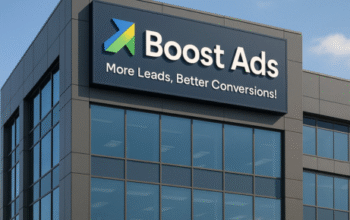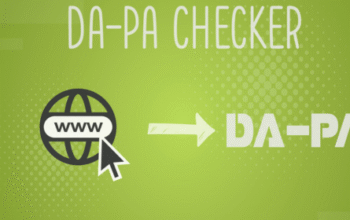Embracing Data-Driven Personalization
Modern consumers expect relevant, tailored experiences. One of the first strategies Digital Marketing Services Minneapolis deploys is advanced data analysis to personalize campaigns across platforms. Agencies start by integrating CRM systems with web analytics tools to collect customer interaction data, including browsing behavior, purchase history, and demographic details.
To execute this:
- Collect data from Google Analytics, CRM, email campaigns, and social media platforms.
- Segment the audience based on behavior and preferences.
- Craft dynamic content (like personalized email subject lines or homepage offers) for each segment.
- Run A/B tests to determine which personalization tactics improve engagement.
For instance, a Minneapolis-based fashion retailer worked with a digital agency to personalize Facebook ads based on users’ previous website activity. As a result, click-through rates improved by 45% and conversions by 27%.
Leveraging Local SEO and Google Business Profiles
As consumer behavior trends toward “near me” searches, local SEO has become crucial. Minneapolis digital marketers optimize clients’ Google Business Profiles (GBPs), maintain local citations, and encourage user-generated content like reviews to enhance visibility in location-based searches.
Steps to execute:
- Claim and verify the business’s GBP.
- Ensure NAP (name, address, phone number) consistency across all online platforms.
- Add high-quality photos, services, hours, and links.
- Encourage happy customers to leave reviews and respond to all reviews (positive or negative).
A local law firm that implemented a review-generation campaign and updated its GBP saw a 60% increase in calls from search within three months.
Capitalizing on Social Commerce Trends
Consumers now expect to discover, research, and purchase products directly within social platforms. Minneapolis digital marketing teams have responded by creating social-first strategies—developing Facebook and Instagram Shops, shoppable reels, and TikTok campaigns tailored for conversions.
How to execute:
- Connect your product catalog to Facebook/Instagram Shops.
- Use short-form videos to showcase product use cases or customer testimonials.
- Collaborate with local influencers to build trust and boost visibility.
- Run retargeting ads based on social interactions.
A Minneapolis boutique saw a 3x return on ad spend after launching a series of TikTok videos linked to shoppable posts, showcasing limited-edition summer inventory.
Investing in Voice Search Optimization
Voice searches are on the rise, especially for local information. Digital Marketing Services in Minneapolis are adapting by optimizing content for conversational queries and featured snippets, making websites more accessible via smart assistants like Siri or Google Assistant.
Execution steps:
- Research voice-oriented long-tail keywords (e.g., “best pizza place near downtown Minneapolis”).
- Create FAQ sections that answer common voice queries naturally.
- Use schema markup to improve chances of appearing in voice results.
- Ensure websites are mobile-friendly and load quickly.
An HVAC company that added a voice-optimized FAQ to their homepage saw an 18% increase in organic search traffic within two months.
Adapting to Privacy Changes and Cookie Loss
With third-party cookies being phased out, marketers are shifting to first-party data strategies and contextual targeting. Minneapolis agencies now focus on building trust and consent-based marketing through gated content, newsletter opt-ins, and loyalty programs.
To implement this:
- Develop gated assets like eBooks or free tools to collect user emails.
- Use email nurturing campaigns to stay connected with leads.
- Launch contextual ad campaigns based on page content rather than user behavior.
- Comply with data regulations like GDPR and CCPA by clearly stating privacy policies and offering opt-in consent.
A Minneapolis B2B software company replaced cookie-based retargeting with a lead magnet campaign and grew their email list by 1,000 qualified leads in six weeks.
Prioritizing Video and Interactive Content
Attention spans are shorter, and engagement depends on more than static images or text. Digital marketers are prioritizing video, polls, quizzes, and interactive infographics to hold user attention and boost engagement rates.
Here’s how to do it:
- Audit your existing content and identify pages that can be enhanced with video or interactivity.
- Create explainer videos, behind-the-scenes reels, or customer stories.
- Embed quizzes or interactive tools on blog posts to increase time on page.
- Promote these assets through social media and email.
A Minneapolis health clinic used a symptom quiz embedded on their website to guide users to appropriate services. The bounce rate dropped by 30%, and appointment bookings increased by 22%.
Using Agile Marketing to Pivot Quickly
Consumer preferences shift fast, and digital agencies in Minneapolis are using agile frameworks to respond in real time. This includes short sprint cycles, frequent testing, and cross-functional team collaboration to rapidly adjust messaging, creative, or media allocation.
Execution steps:
- Set weekly or biweekly sprints with specific goals (e.g., improve click-through rates).
- Review campaign analytics daily or weekly.
- Run multivariate tests across platforms.
- Use a collaborative dashboard (e.g., Asana or Trello) to manage adjustments and feedback loops.
A local events company pivoted from live gatherings to virtual events during the pandemic using agile practices. They launched new digital ad creatives in just 48 hours, maintaining client engagement and event turnout.
Conclusion
In a city where trends and technology evolve rapidly, Digital Marketing Services Minneapolis continue to stay ahead by embracing data, prioritizing user experience, and staying responsive to shifts in behavior. By combining personalization, local optimization, privacy-conscious strategies, and agile execution, these services ensure brands connect with today’s consumers in meaningful, measurable ways.



